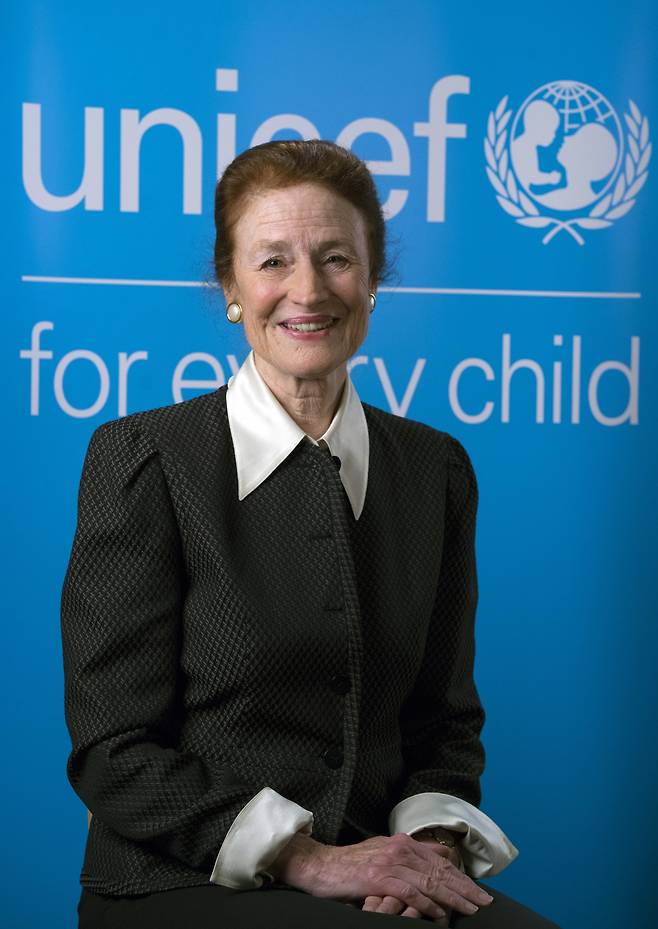[Contribution] UNICEF and Korea: Together driving change for children
이 글자크기로 변경됩니다.
(예시) 가장 빠른 뉴스가 있고 다양한 정보, 쌍방향 소통이 숨쉬는 다음뉴스를 만나보세요. 다음뉴스는 국내외 주요이슈와 실시간 속보, 문화생활 및 다양한 분야의 뉴스를 입체적으로 전달하고 있습니다.

It has been 30 years since the Republic of Korea joined the United Nations on 17 September 1991, and over the past three decades the country has emerged as a central partner in international development cooperation and humanitarian assistance. The country’s relationship with the United Nations Children’s Fund goes back to the founding of the Republic of Korea in 1948. For more than four decades, UNICEF had a country office presence, providing humanitarian and development support to the people of Korea. In 1994, after Korea became the first country in the world to transition from a recipient country to a donor country, the UNICEF country office was replaced by the Korean Committee for UNICEF, which advances children’s rights and well-being globally through advocacy and private sector fundraising in Korea.
As we celebrate our partnership, it is a difficult time for the world’s children. The COVID-19 pandemic and other crises are combining to deprive children of their health and well-being. They are confronted with an array of incredible challenges: the mounting consequences of climate change, economic instability and poverty, conflict, discrimination, and limited access to essential services and learning opportunities. Across the globe, UNICEF is on the ground working to reach every child –- even those living in the most remote places -- with the services and support they need.
As I reflect upon the depth of our collaboration and our many successes, a few highlights stand out. Most notably, Korea now ranks among UNICEF’s top 10 donors, counting both public and private funding. It is the 4th largest private sector donor through the efforts of the Korean Committee and its more than 430,000 individual supporters, and it is the 11th largest public sector donor through the contributions of the Korean Government. Over the past 10 years, total contributions to UNICEF have increased threefold to $143 million in 2020. Impressively, Korea is the fourth-largest government donor to UNICEF’s global humanitarian funding, and the Korean Committee is the second-largest private sector contributor of core resources to the organization -- funds that are critical to enabling us to reach each and every child in need.
Korea’s funding, advocacy, and technical support over the past three decades has been critical to UNICEF’s humanitarian work, ensuring a continuum of support for children before, during, and after emergencies. Korea has enabled UNICEF to address the needs of vulnerable children and women in conflict situations in the Balkans and Rwanda in the 1990s; Afghanistan, Iraq, and Sudan in the 2000s; and Myanmar, Syria, and Yemen in the 2010s, among others. We have also responded to countless natural disasters, including the 2004 Indian Ocean tsunami, earthquakes in Haiti in 2010 and again in 2021, the East Africa drought of 2011, and Typhoon Haiyan in the Philippines in 2013.
Korean funding has also been directed to public health emergencies, including Ebola in West Africa in 2013 and the ongoing COVID-19 pandemic. In 2020, UNICEF responded to 455 humanitarian crises in 152 countries, most of which received some support from Korea either through country-specific contributions or through flexible funding to our core resources or our global humanitarian fund.
The Korean Government has responded to the global COVID-19 pandemic by contributing 4.6 million high-quality face masks to 24 countries in Africa and Latin America through UNICEF, and by pledging $200 million to the COVAX Facility through a combination of financial and in-kind contributions. UNICEF has shipped more than 236 million doses of COVID-19 vaccines through COVAX to 139 countries. We are able to do so because we have one of the largest supply networks in the world, dispatching urgently required materials such as mosquito nets, hygiene kits, nutrition supplies, and vaccines wherever they are needed – by land, sea, or air.
As we celebrate the past 30 years of the UNICEF-Korea partnership, 2021 also marks UNICEF’s 75th anniversary. Looking to the future, we will work to harness the power of technology and digital innovation for children; we will reimagine education in the context of the global learning crisis; we will address the mental health challenges facing millions of children; we will address the impacts of climate change on children; and we will reverse the rise in child poverty.
UNICEF is ready to build upon our great collaboration with Korea to continue tackling the most intractable development and humanitarian challenges, including those presented by the pandemic, and to find innovative solutions to jointly achieve the Sustainable Development Goals.
Thanks to the Korean Government’s commitment to UNICEF and the generosity of the Korean people, millions of children around the world have survived and thrived through our combined efforts.
From the bottom of my heart, I thank you for your loyal care and support for the children of the world.
By Henrietta Fore
The writer is the Executive Director of UNICEF. The views reflected in the article are her own. -- Ed.
By
Copyright © 코리아헤럴드. 무단전재 및 재배포 금지.